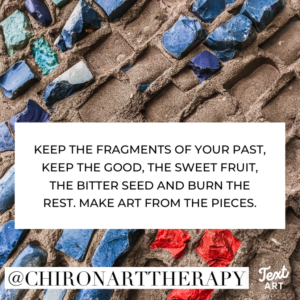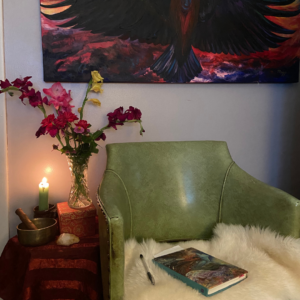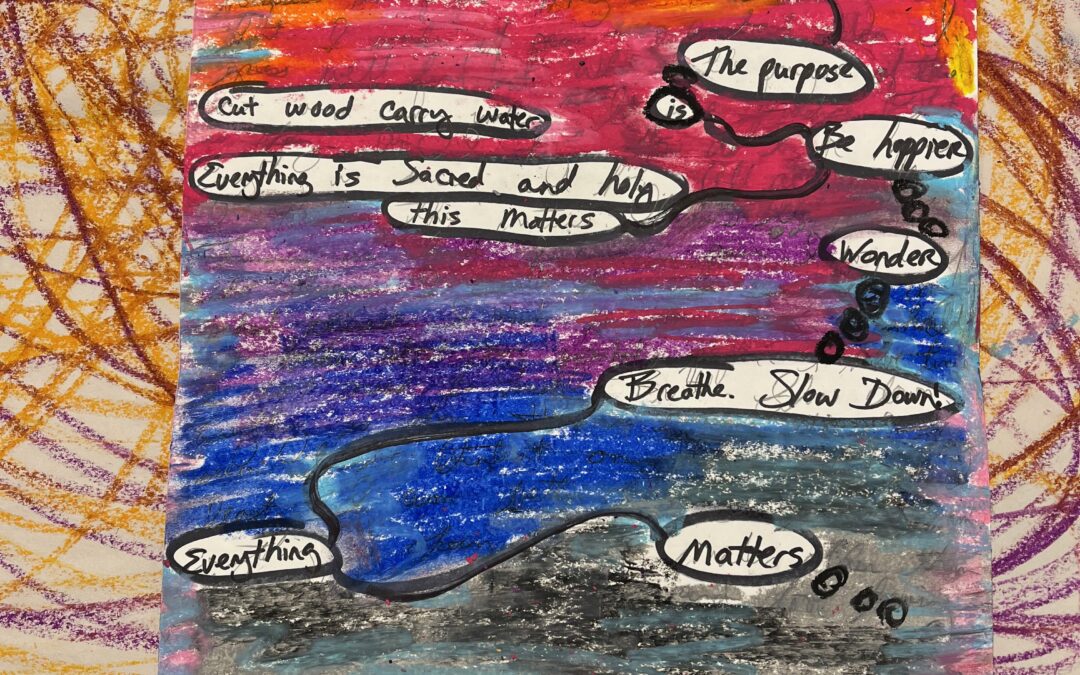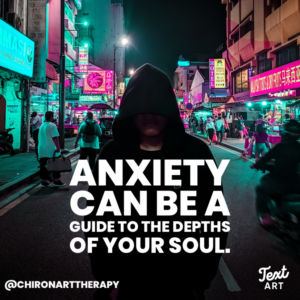In my work of trauma-informed art therapy and depth therapy, I have found that a lot of the people I work with are survivors. Things were complicated growing up. Another term currently being used are adverse childhood experiences or ACE’s. They were smart, they adapted, they learned, and managed to get through life such as getting through school or getting married.
Navigating Survivors’ Complexities
Understanding the Impact on Physical, Emotional, and Mental Well-being
But, due to the complications (and for some complications is much too gentle of a word), they often experience other symptoms such as migraines, stomach issues, or immune disorders.
Dissociation and Other Chronic Symptoms
If it’s never been safe to have an opinion, set a boundary, or be psychologically in your body, then your psyche copes by dissociating. However, our bodies try to make sense of what happened through symptoms. Unfortunately, if you coped by living in your head, a book, a fantasy, or by zoning out over the years, it’s difficult to get grounded and reconnect with your body.
It can be experienced as feeling overwhelmed, avoiding feelings, or feeling stuck or shut down, disconnected, and a dissonance with you are. It can feel foggy or paralyzing.
Embodiment – The Body Speaks
Bessel van der Kolk describes this process in his seminal book, The Body Keeps the Score. Your body will keep trying though to get you to look at what it needs and what you need. This is the kind of work I do with my clients with art therapy.
Trauma-Informed Art Therapy
We do art exercises, visualization, guided meditations, and grounding exercises to regulate the nervous system so you can start to work with your body and understand what it is telling you and what you need. Check out my videos for a couple of art therapy technique examples here.
Another way that some experience this is not just through bodily symptoms, but also with mental and emotional symptoms. These indications can include overthinking, people-pleasing, social awkwardness or on the other side of the scale being fearful of speaking up and feeling bad when you don’t say anything. This overwhelming guilt can also manifest as shame, perfectionism, an overbearing inner critic, not trusting yourself, or low self-esteem.
Here’s a video I made with a guided meditation to help with social anxiety or feeling ungrounded or overwhelmed in crowded places.
Emotional and Mental Symptomatology
Navigating Guilt and Shame: From Overthinking to Low Self-esteem
Some of the emotional pieces can be excessive guilt, even for things that you can’t control or aren’t your fault. This can also be a sense of shame. It could be a feeling that you are at odds with yourself, or that you are innately broken. I love Brene’s Brown’s distinction between guilt and shame which you can read about here.
Better Coping Skills
I’m not going to take your current coping skills away from you. I will help you reorient your consciousness so you can decide what works for you. Then you can try what might work better to complement who you are and where you’re coming from.
Depth Psychotherapy – A Strength-Based Approach
Depth psychotherapy works with evidenced based theory to help you navigate how to stabilize, make sense of your situation, process the past, and feel supported and safe.
Honoring Individuality
I believe there is treasure if your soul that your psyche has protected all these years. Therefore, I work with my clients’ individual needs and preferences to provide personalized treatment. Furthermore, I don’t generalize with a manual or a strict program that turns you into a statistic. That’s so inhumane!
Finding Additional Support
Some of my clients look at other supports in between therapy sessions. For some this means group therapy and individual therapy, support groups, or AA. For others this means incorporating regular supportive physical activities such as massage, yoga class, or a walking practice.
Supportive Processing Practices to Try on Your Own

For others solitary reflection activities can be supportive ways to process in between sessions such as regular journaling, art making, meditation, or doing tarot readings.
Repairing Attachment Trauma
My therapy room is a safe container for you to build on your strengths, repair attachment wounds, and then, on your timeline, help you recognize your precious uniqueness. Yes, insecure attachment relationship styles can be changed.
More Than General Therapy or Cognitive Counseling
This is the piece where it is a crucial difference that moves from practical psychotherapy and then goes further into the alchemy of depth work.
I have seen reoccurring nightmares or troubling, repetitive dream themes change through depth work. The coolest thing about dream work to me is that the dream is telling you something. This something you don’t know consciously and something you are ready to hear. Repetitive dreams are trying to work through something and it’s telling you you’re ready to work it out.
You can read more about this in my blog post, I’m Not in Crisis Anymore, Do I Still Need Therapy?
Final Thoughts on Trauma-Informed Art Therapy
In conclusion, navigating the complexities of trauma survivors requires a holistic approach that addresses both the emotional and physical symptoms of the individual. Through trauma-informed art therapy and depth psychotherapy, healing becomes a journey of self-discovery and empowerment.
If you’re ready to take your healing journey to a deeper place, I invite you to take the first step by reaching out for a chat about your needs and how I work. Together, we can unlock the treasure within your soul and pave the path towards a more fulfilling and authentic life.


